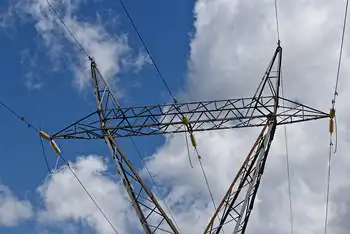Long-term Grid Bids Should Get Priority
WASHINGTON -- - The Public Service Enterprise Group Inc., a New Jersey utility, urged the Federal Energy Regulatory Commission to clarify whether long-term, firm transmission requests on the Midwest power grid should take precedence over short-term requests.
The utility said it supported a complaint filed by Tenaska Inc., which contends the Midwest Independent Transmission System Operator (ISO) unfairly denied it long-term transmission capacity.
Public Service Enterprise Group said the case raises an important question about whether long-term transmission requests are being replaced by short-term transmission on the Midwest ISO, an electricity market that covers 15 states and part of Canada.
FERC has previously said a long-term transmission service request gets priority over similar ones for short-term service.
"The circumstances surrounding Tenaska's complaint indicate the immediate need for transparent, orderly procedures for transmission subscription on the Midwest ISO's system," Public Service Enterprise Group told FERC in a filing.
"The absence of such predictability will have a chilling effect upon potential transactions, and will inhibit the development of liquid, robust markets for electric energy in the Midwest," it added.
FERC has held a series of public conferences on its proposed rules for trading and transmission of wholesale electricity in regional markets.
Tenaska complained to FERC that the Midwest ISO rejected its request for long-term transmission capacity to ship electricity to the Michigan-Ontario border in favor of short-term transmission buyers.
Omaha-based Tenaska owns electric generating plants in Virginia, Oklahoma, Alabama, Georgia, Texas and Washington. The company is privately owned.
PSEG is the nation's fourth-largest independent power producer.
Related News

Group of premiers band together to develop nuclear reactor technology
TORONTO - The premiers of Ontario, Saskatchewan and New Brunswick have committed to collaborate on developing nuclear reactor technology in Canada.
Doug Ford, Scott Moe and Blaine Higgs made the announcement and signed a memorandum of understanding on Sunday in advance of a meeting of all the premiers.
They will be working on the research, development and building of small modular reactors as a way to help their individual provinces reduce carbon emissions and move away from non-renewable energy sources like coal.
Small modular reactors are easy to construct, are safer than large reactors and are regarded as cleaner energy than coal, the…




